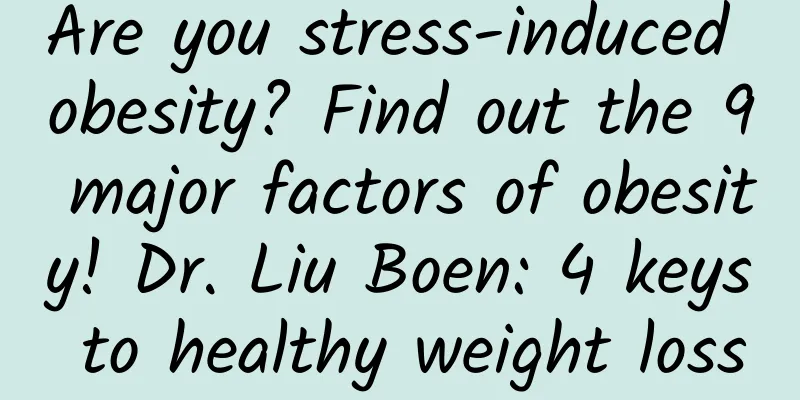A woman with a thick waist and a small belly hides three highs and gastrointestinal crisis! Dr. Zheng Naiyuan: These 2 tips can help you stay away from the risk of colorectal cancer

|
Modern people's lifestyle is becoming more and more sedentary, coupled with bad eating habits, resulting in many people having thick waists and small bellies. Director Zheng Naiyuan of Lian'an Preventive Medicine Institute pointed out that the risk of thick waist is gender-neutral. People with thick waists tend to have a circle of fat around their waists, or have an excessive waist-to-hip ratio. Not only are they prone to suffering from the three highs, but their intestinal health also sounds red, and the risk of colorectal cancer increases greatly! According to the National Health Administration's survey results on changes in national nutritional health status from 2005 to 2008, 33.6% of women have waist circumference exceeding 31 inches (about 80 cm), while only 20.2% of women had waist circumference exceeding the standard in the 1993 to 1996 survey, indicating that women's waist circumference is tending to become larger. According to a survey conducted by Lian'an Preventive Medicine Institute, office workers who are accustomed to eating out for three meals a day lack dietary fiber intake for a long time due to poor eating habits, and are also prone to consuming too much high-fat, high-calorie food. Such foods are usually high in carbohydrates, which easily stimulate insulin to convert excess calories into body fat and store them in the internal organs. As a result, up to 70% of office workers have an excessively high "waist-to-hip ratio". Zheng Naiyuan said that once the "waist-to-hip ratio" is too high, it means that too much visceral fat is accumulated in the waist and abdomen. In addition to easily inducing the three high diseases, it is also easy to affect intestinal health. Lian An further observed obese people and found that they also had a higher incidence of intestinal polyps. For people with BMI ≧ 24, one out of every two heavyweight people has intestinal polyps. People with polyps in the intestines have several times the chance of developing colorectal cancer than ordinary people, indicating that obesity makes people more likely to be a high-risk group for colorectal cancer. Dietary fiber can promote intestinal peristalsis and reduce the contact time between carcinogens and intestinal walls, thereby reducing the incidence of intestinal cancer and promoting intestinal health. At the same time, dietary fiber has the characteristics of slowing down the absorption of fat and sugar and has no calorie. Therefore, consuming enough dietary fiber can prevent the accumulation of fat in the waist and abdomen. 33.6% of women have waist circumference exceeding 31 inches (about 80 cm). In the survey from 1993 to 1996, only 20.2% of women had waist circumference exceeding the standard, indicating that women's waist circumference has a tendency to become larger. 2 tips to avoid fat waistbands, high blood sugar, high blood sugar and colorectal cancer risksTo avoid the risks of three highs, high blood sugar and colorectal cancer caused by thick waistlines, Dr. Zheng Naiyuan recommends two tips, including consuming fruits and vegetables, supplementing dietary fiber, and doing regular gastrointestinal health checks. The first step is to eat fruits and vegetables to reduce the problem of waist and abdomen enlargement However, Zheng Naiyuan said that the Chinese people's intake of vegetables and fruits is far lower than the recommended amount by the Ministry of Health and Welfare. Adult males should consume 9 fists of vegetables and fruits a day, while adult women should consume 7 fists. People often mistakenly regard staple foods such as rice, noodles, and bread as the main source of fiber intake. However, since these foods are high in starch and low in fiber, excessive calorie intake in the long run may unexpectedly cause the problem of a thick waist, which shows that it is necessary to correct the concept of fiber intake. According to European research, fiber intake can indeed reduce the risk of colorectal cancer. If the daily dietary fiber intake is less than 16.4 grams, the colorectal cancer risk index is 1, but if the intake is more than 28.5 grams, the risk index drops to 0.76. The Chinese people's intake of vegetables and fruits is far below the recommended amount by the Department of Health. Adult males should consume 9 fists of vegetables and fruits a day, while adult females should consume 7 fists. Tip 2: Regular gastrointestinal health checks If you already have a large waist and abdomen, in addition to paying attention to your eating habits in daily life and maintaining intestinal health, you should also pay attention to the importance of gastrointestinal health checks. Dr. Zheng Naiyuan calls for a complete gastrointestinal screening every year starting from the age of 30-40, including fecal occult blood test, colonoscopy and gastroscopy. Especially those who have a family history of colorectal cancer, intestinal polyps, or abnormal diet and lifestyle, especially those who are at risk of waist obesity, are at high risk of colorectal cancer and should undergo regular screening every 1-2 years to stay away from the health threats brought by colorectal cancer. |
<<: Drink tea to lose weight and reduce fat! These 6 tea drinks will help you lose weight easily
Recommend
Oats lower cholesterol, but are they a killer of triglycerides? Nutritionist: Two groups should not eat oats, be careful of harming your health
High-fat, high-sugar diets and alcoholism are all...
Examination items needed for uterine effusion
Gynecologists say that early detection and treatm...
The symptoms of pelvic inflammatory disease and cervicitis are more serious than those of
According to clinical experience and medical rese...
The causes of irregular menstruation need to be taken seriously!
Many women panic and don't know what to do af...
How to treat benign uterine fibroids? Nursing methods for patients with benign uterine fibroids
As one of the most common benign tumors, uterine ...
Hyperprolactinemia has three major symptoms
At present, the number of people suffering from h...
Pregnant women should eat small meals frequently and drink 2,000cc of water during the hot summer
For pregnant women with big bellies, the stomach ...
Is it true that eating shepherd's purse dumplings can cause miscarriage?
Is it true that eating shepherd's purse dumpl...
How to deal with menstrual cramps
What should I do if I have dysmenorrhea? 1. Keep ...
What is the treatment for chronic adnexitis?
What is the treatment for chronic adnexitis? This...
How to replenish the body after miscarriage? When is the best time to replenish the body after miscarriage?
Many female friends often go to the hospital for ...
Specific causes of acute pelvic inflammatory disease
Pelvic inflammatory disease is a relatively serio...
What is the difference between polycystic ovary and ovarian cyst? Are they the same?
Although ovarian cysts are not common, they are d...
What to check for abnormal vaginal discharge in women
Women with abnormal vaginal discharge need to und...
Clear yourself! Council of Agriculture: 97% of pig farmers signed the pledge
As clenbuterol was detected in pork, the Council ...









